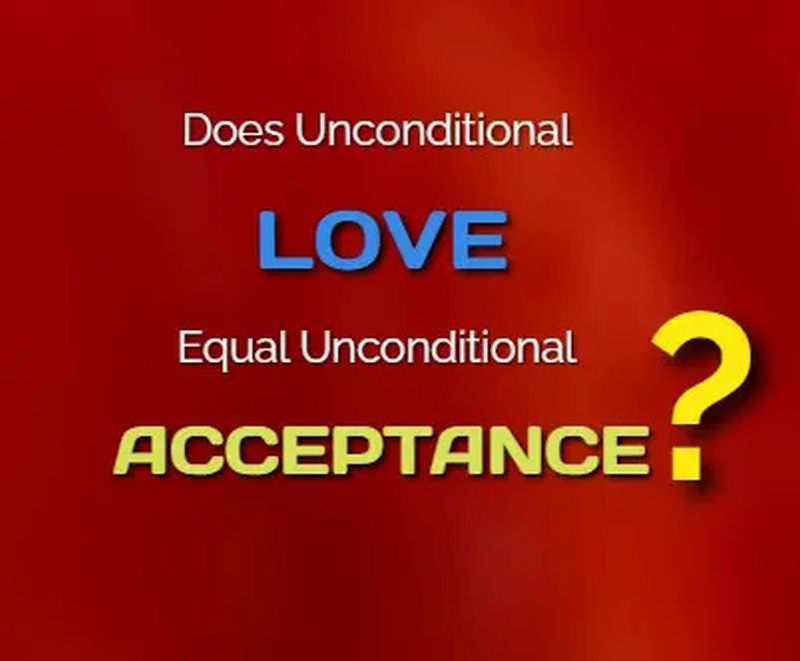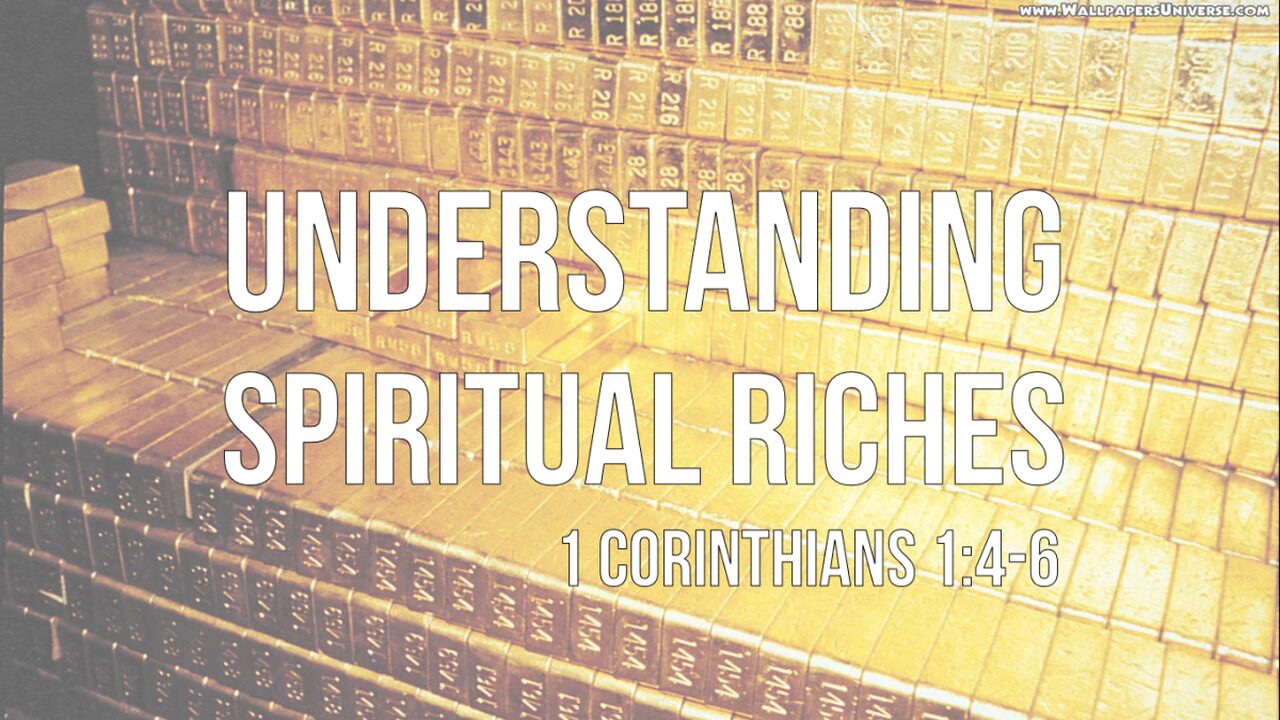Martin Bobgan, PhD.
Among the stellar emotional needs of humanistic psychology are unconditional acceptance, unconditional self-regard, unconditional self-acceptance, and unconditional love. The meaning of the word unconditional is “without conditions or reservations; absolute.”1 The practical extension of the theories of unconditional love is a permissive attitude and a morally nonrestrictive atmosphere. That means no conditions or restrictions in child rearing, counseling, and other human relationships. Since the parent or counselor is to be giving unconditional love, it must be an absolute love, unrestricted by human feelings or failings, since the very meaning of the word is “absolute.” But, if there is any absolute when it comes to love, it is that human love is limited. It is not what it was originally created to be, even in the best of people and circumstances, except when Jesus Himself is loving in and through a person.
Adler and Maslow considered these “unconditionals” to be basic human needs, essential to a person’s sense of wellbeing. They taught that people need to be loved and accepted unconditionally—without any conditions of performance. Thus their followers teach that parents must love and accept their children unconditionally. Moreover, they encourage all people to love and accept themselves unconditionally.
Adler, Maslow, Rogers and others believed that a human being will find answers to his own dilemmas and naturally blossom into his best self in an atmosphere of unconditional love and acceptance, by which they meant a permissive, unstructured atmosphere. Nevertheless, as much as they would like to think that they themselves loved their clients unconditionally, the truth of the matter is this: people are not able to love unconditionally.
The Myth of Unconditional Love
Unconditional love is a myth. That is because the human is naturally self-biased and the human heart is so deceitful that one can fool himself into thinking that he is loving unconditionally, when in fact he has all kinds of conditions. For instance, what kind of unconditional love and unconditional positive regard is at work when the client can no longer pay for services and therapy is discontinued? Furthermore, even the most nondirective counselors express approval or disapproval in subtle, if not direct, ways.2
The idea of people improving their life in an atmosphere of unconditional love is founded on the premise that people are born good and that their natural inclination to goodness is thwarted by their environment (mainly parents). In such a system, self is the victim of society but finds salvation, freedom, and fulfillment through unconditional self-love and self-acceptance. Unconditional love cannot be based upon performance or it wouldn’t be unconditional. Therefore, it must be based on the intrinsic worth of the person. Paul Brownback, in his book The Danger of Self-Love, explains it this way:
- . . . by unconditional love we are speaking of love on the basis of being rather than doing. One implication of this teaching is the place of grandeur that it gives to the human being. I am lovable just because I am human; therefore being human, in and of itself, regardless of what I do with my humanness, must have some sort of independent value or worth. It is by itself a sufficient claim to respect and esteem.3
Thus, according to these self theories, everyone is born with the right to receive unconditional love and unconditional acceptance throughout his entire life, no matter what!
Pastors assigned to shepherd God’s flocks, should have been alert to the subtleties of deception that would turn a believer’s eyes from God to self. But alas, rather than warning the sheep, many of the shepherds have joined the psychologists and embrace their teachings of unconditional love and unconditional acceptance.
A Misunderstanding of God’s Love
The basis for their eager embrace is a misunderstanding of the love of God which passes knowledge. They equate unconditional love and acceptance with the fact that God’s love is vast, unfathomable, and unmerited. Then they follow that with the idea that if God loves and accepts people unconditionally, they should also love and accept themselves unconditionally. While this may sound like a logical progression, there are some serious problems with the basic assumptions. Therefore, we must address the question: Is God’s love unconditional? Are there any conditions that must be met to become a recipient of His love?
Paul prayed that the believers in Ephesus would be able to comprehend the breadth, length, depth and height of God’s love. He desired that they know the love of Christ, which surpasses knowledge, so that they would be filled with the fullness of God (Ephesians 3:16-19). The wide expanse of God’s love has been the theme of the gospel throughout the ages, for to know His love is to know Him. Therefore, any consideration of His love is highly important and must be based upon His revelation of Himself rather than upon the imagination of men.
Love According to Secular Humanism
Ever since the rise of secular humanism in this country and especially since the establishment of humanistic psychology, the popular, “relevant” term to describe God’s love has been unconditional. The thrust of this word in humanistic psychology has been both to give and to expect unconditional love from one another with no strings attached. While unconditional love and acceptance supposedly promote change and growth, they make no requirements. But God, who is love, requires and produces radical change—new life—and He enables His children to grow in righteousness.
In humanistic psychology, parents and society are always the culprits. Since they believe that every person is born with intrinsic worth and innate goodness, psychologists contend that one main reason people experience emotional and behavioral problems is because they have not received unconditional love from their parents. Following that thesis, Christians have come to believe that the best kind of love is unconditional love. It is the highest love secular humanists know. It is touted as a love that makes no demands for performance, good behavior, or the like. It has also been associated with a kind of permissiveness, since it makes no demands and has no conditions, even though the promoters of the unconditional love jargon would say that unconditional love does not have to dispense with discipline.
God’s Love Revealed through Scripture
Because the concept of unconditional love permeates society and because it is often thought of as the highest form of human love, it is natural for a Christian to use this term to describe God. After all, His love is far greater than any human love imaginable. God’s love for humanity is so great that “He gave His only begotten Son that whosoever believeth in Him should not perish, but have everlasting life” (John 3:16). Oh, the magnitude of the cost! We cannot even fathom His love even though our very breath depends upon it! His love indeed reaches to the heights and depths. Nevertheless, is God’s love truly unconditional?
God’s love is available to human beings by grace alone. There is nothing anyone can do to earn that love. There is no good work that is either demanded or even possible. Does that make God’s love unconditional? Because unconditional love is absolute and without any conditions whatsoever, all men would be saved if God’s love were unconditional. But that would be universalism. That would nullify the need for Christ’s sacrificial death and God’s condition of salvation by grace through faith.
We must also ask, does God’s love apply to the person who has sinned against the Holy Spirit by refusing to receive His grace throughout his lifetime and who is destined for hell? God chooses upon whom He will place His love and the benefits of his love. Did Jesus ever imply that God’s love is unconditional? He said to His disciples:
He that hath my commandments, and keepeth them, he it is that loveth me: and he that loveth me shall be loved of my Father, and I will love him, and will manifest myself to him (John 14:21).
One might argue, however, that the story of the prodigal son proves unconditional love. It indeed illustrates the vastness of God’s love, forgiveness and longsuffering. However, the son repented. If he had had a prosperous evil life he may never have repented. And while the father would have waited and hoped, he would not have extended his love. After all, he did not go out searching for him to support his folly. Up to a point this seems to indicate unconditional love, and yet, God is not waiting in ignorance, not knowing what those for whom His son died might be doing. He knows, and there comes a time when those who have refused his offer of love and forgiveness die and face the judgment. It is difficult enough to understand God’s love without adding the term unconditional which is loaded with secular, humanistic, psychological connotations. The story of the prodigal son teaches grace, forgiveness and mercy—but unconditional love? No!
While God loves with a greater love than humans can comprehend, His holiness and justice also must be taken into consideration. Therefore the term unconditional love is inadequate for defining God. It does not account for God’s reaction to pompous men who devise plans against Him and His anointed. The psalmist goes so far as to say:
He that sitteth in the heavens shall laugh: the Lord shall have them in derision. Then shall he speak to them in his wrath, and vex them in his sore displeasure (Psalm 2:4-5).
And what about Lot’s wife as she turned to look at the smoldering cities? Or what about Jesus’ words to the cities that refused to repent?
Woe unto thee, Chorazin! woe unto thee, Bethsaida! for if the mighty works, which were done in you, had been done in Tyre and Sidon, they would have repented long ago in sackcloth and ashes. But I say unto you, It shall be more tolerable for Tyre and Sidon at the day of judgment, than for you. And thou, Capernaum, which art exalted unto heaven, shalt be brought down to hell . . . . it shall be more tolerable for the land of Sodom in the day of judgment, than for thee (Matthew 11:21-24).
Does that sound like unconditional love?
But perhaps one could say that God’s love for the Christian is unconditional since the Christian partakes of His love and grace through faith. Wouldn’t it be better to say that the conditions have been met? Jesus met the first condition, to wash away the sin that God hates. The believer meets the second condition by grace through faith. Or, perhaps it would be better to say that God’s love extended to a person is conditioned by His plan to give eternal life to those who believe on His Son. The conditions of God’s love are resident within Himself.
There is a strong temptation to use vocabulary that is popular in society in order to make Christianity sound relevant. Christians have something far better than what the world offers, but in expressing that good news they confuse people by using words that are already loaded with humanistic connotations and systems of thought. It would be better not to use the expression unconditional love when describing God’s love. There are plenty of other good words.
In this was manifested the love of God toward us, because that God sent his only begotten Son into the world, that we might live through him.
Herein is love, not that we loved God, but that He loved us, and sent his Son to be the propitiation for our sins. . . .
And we have known and believed the love that God hath to us. God is love; and he that dwelleth in love dwelleth in God, and God in him (1 John 4:9, 10, 16).
The incomprehensible magnitude of God’s love surpasses any concept of love devised by humanistic psychologists. The doctrine of unconditional love is a myth that glorifies man rather than God.
1. Webster’s New Universal Unabridged Dictionary, Second Edition, 1983.
2. Jay Haley. Strategies of Psychotherapy. New York: Grune & Stratton, Inc., 1963, pp. 71, 82.
3. Paul Brownback. The Danger of Self-Love. Chicago: Moody Press, 1982, p. 66.
PsychoHeresy Awareness Ministries, 4137 Primavera Road, Santa Barbara, CA 93110
Request PsychoHeresy Awareness Newsletter, it’s great.
Sign up for free email devotional HERE… The Moments with My Master email devotional is sent out for the edification of the body of Christ.
Support | STORE | Podcasts | Jail/Prison Ministry | Mexico Mission here | All Ministry Updates| More on Assurance here | Because You Care Page | The Greatest of these is Charity | Be Ready in the Morning [podcast] | The Sure Mercies of David [podcast] | That Repentance and Remission of Sins should be Preached [podcast] | At His Feet



Articles
Rich in Faith [podcast]

“Them that Love Him”
——WHAT one temporarily has in this fleeting world or doesn’t have, has NOTHING to do with that person’s spiritual state. This is what Jesus taught: “Take heed, and beware of covetousness: for a man’s life consisteth not in the abundance of the things which he possesseth.” (Luke 12:15) In fact James says:
“HEARKEN, MY BELOVED BRETHREN, HATH NOT GOD CHOSEN THE POOR OF THIS WORLD RICH IN FAITH, AND HEIRS OF THE KINGDOM WHICH HE HATH PROMISED TO THEM THAT LOVE HIM?” JAMES 2:5
James says God chooses those for His eternal kingdom “that love him,” namely “the poor of this world.” We are justified by “faith” and not by what we do or do not temporarily possess in this fleeting life.
IF in your mind you rate people by what they have or don’t have in this fleeting sinful world, you are deeply deceived and in utter need of repentance and the washing of water by the Word of God. You are carnally minded (Romans 8:5-6).
Regrettably, it seems that most people professing to be following Christ, the One who gave all, are not the least bit concerned if their brother or sister has a need. God have mercy upon us and grant us repentance in Jesus’ Name! Are these people truly saved?
“Hereby perceive we the love of God, because he laid down his life for us: and we ought to lay down our lives for the brethren. 17 But whoso hath this world’s good, and seeth his brother have need, and shutteth up his bowels of compassion from him, how dwelleth the love of God in him? 18 My little children, let us not love in word, neither in tongue; but in deed and in truth. 19 And hereby we know that we are of the truth, and shall assure our hearts before him.” 1 John 3:16-19
“If we are in Jesus we have the unsearchable riches of Christ (Ephesians 3:8). Unfathomable (in our small minds), infinite wealth and spiritual blessings! Endless mercy, grace, and forgiveness. That is inexhaustible! Why do we need any worldly riches that will rot and corrupt our hearts!? Lay up in your hearts God’s riches! Which are eternal!” Karen Cochran
Some have tens of thousands in the bank and could care less to find out if a sister or brother has a need. The Bible assures us that they are not saved. If you have even a little to give and don’t, it’s because you simply have chosen not to know and abide in Christ.
“What doth it profit, my brethren, though a man say he hath faith, and have not works? can faith save him? 15 If a brother or sister be naked, and destitute of daily food, 16 And one of you say unto them, Depart in peace, be ye warmed and filled; notwithstanding ye give them not those things which are needful to the body; what doth it profit? 17 Even so faith, if it hath not works, is dead, being alone.” James 2:14-17
The financial institutions and their salesmen are vying for your money. They want your money to invest so that you and they earn a financial gain in this life. Christians in need, orphans, and Gospel workers are also available to invest in. To help them is to invest in the LORD’s kingdom and be repaid dividends for eternity. Oh, and your heart will follow where you choose to place your money. Jesus says “Lay not up for yourselves treasures upon earth, where moth and rust doth corrupt, and where thieves break through and steal: 20 But lay up for yourselves treasures in heaven, where neither moth nor rust doth corrupt, and where thieves do not break through nor steal: 21 For where your treasure is, there will your heart be also.” (Matthew 6:19-21)
PRAYER: Holy Father, please break me and make me Your authentic follower. Jesus I love You. Let me walk as You walked, live as You lived, love as You love. Bless this life You gave to be truly crucified with You – dead, buried, and raised up – a vessel of honor for Your glory! In Jesus’ name.
Let’s Grow Together! Sign up here to begin receiving the Moments with Our Master email devotional that is sure to help you grow in His grace and in the knowledge of our LORD and Savior Jesus Christ (2 Pet. 1:2; 3:18). It’s sent out for the edification of the body of Christ. Sign Up HERE.
Support | STORE | Podcasts | Jail/Prison Ministry | Mexico Mission here | All Ministry Updates | More on Assurance here | Because You Care Page | The Greatest of these is Charity | Be Ready in the Morning [podcast] | The Sure Mercies of David [podcast] | That Repentance and Remission of Sins should be Preached [podcast] | At His Feet | Knowing God | The Cross Life | 100’s of Christ-centered Scripture-rich Podcasts | Christology = the Study of Christ


Abiding
Safety in Wise Counsel [podcast]

“Every purpose is established by counsel: and with good advice make war.” Proverbs 20:18
“The steps of a good man are ordered by the Lord: and he delighteth in his way.” Psalms 37:23
“So teach us to number our days, that we may apply our hearts unto wisdom.” Psalms 90:12
“Safety” in wise counsel from God’s wisdom, Word, and including at times with the help of His beloved saints.
“Where no counsel is, the people fall: but in the multitude of counsellors there is safety.” Proverbs 11:14
“The horse is prepared against the day of battle: but safety is of the LORD.” Proverbs 21:31
“For by wise counsel thou shalt make thy war: and in multitude of counsellors there is safety.” Proverbs 24:6
Caprice means a sudden and unaccountable change of mood or behavior.
“Who is a wise man and endued with knowledge among you? let him shew out of a good conversation his works with meekness of wisdom. 14 But if ye have bitter envying and strife in your hearts, glory not, and lie not against the truth. 15 This wisdom descendeth not from above, but is earthly, sensual, devilish. 16 For where envying and strife is, there is confusion and every evil work. 17 But the wisdom that is from above is first pure, then peaceable, gentle, and easy to be intreated, full of mercy and good fruits, without partiality, and without hypocrisy. 18 And the fruit of righteousness is sown in peace of them that make peace.” James 3:13-18
Support | STORE | Podcasts | Jail/Prison Ministry | Mexico Mission here | All Ministry Updates | 100’s of Christ-centered Podcasts | Bible Books Narrated | Bible Study Helps | The Book of James Narrated [podcast] | The Book of Revelation Narrated [podcast] | Colossians Overview [podcast]


Articles
“Let Brotherly Love Continue” [podcast]

“Let Brotherly Love Continue.” Hebrews 13:1
“And walk in love, as Christ also hath loved us, and hath given himself for us an offering and a sacrifice to God for a sweetsmelling savour.” Ephesians 5:2
1 John 4
God Is Love
“7 Beloved, let us love one another: for love is of God; and every one that loveth is born of God, and knoweth God.
8 He that loveth not knoweth not God; for God is love.
9 In this was manifested the love of God toward us, because that God sent his only begotten Son into the world, that we might live through him.
10 Herein is love, not that we loved God, but that he loved us, and sent his Son to be the propitiation for our sins.
11 Beloved, if God so loved us, we ought also to love one another.
12 No man hath seen God at any time. If we love one another, God dwelleth in us, and his love is perfected in us.
13 Hereby know we that we dwell in him, and he in us, because he hath given us of his Spirit.
14 And we have seen and do testify that the Father sent the Son to be the Saviour of the world.
15 Whosoever shall confess that Jesus is the Son of God, God dwelleth in him, and he in God.
16 And we have known and believed the love that God hath to us. God is love; and he that dwelleth in love dwelleth in God, and God in him.
17 Herein is our love made perfect, that we may have boldness in the day of judgment: because as he is, so are we in this world.
18 There is no fear in love; but perfect love casteth out fear: because fear hath torment. He that feareth is not made perfect in love.
19 We love him, because he first loved us.
20 If a man say, I love God, and hateth his brother, he is a liar: for he that loveth not his brother whom he hath seen, how can he love God whom he hath not seen?
21 And this commandment have we from him, That he who loveth God love his brother also.”
1 Corinthians 13
“Though I speak with the tongues of men and of angels, and have not charity, I am become as sounding brass, or a tinkling cymbal. 2 And though I have the gift of prophecy, and understand all mysteries, and all knowledge; and though I have all faith, so that I could remove mountains, and have not charity, I am nothing. 3 And though I bestow all my goods to feed the poor, and though I give my body to be burned, and have not charity, it profiteth me nothing. 4 Charity suffereth long, and is kind; charity envieth not; charity vaunteth not itself, is not puffed up, 5 Doth not behave itself unseemly, seeketh not her own, is not easily provoked, thinketh no evil; 6 Rejoiceth not in iniquity, but rejoiceth in the truth; 7 Beareth all things, believeth all things, hopeth all things, endureth all things. 8 Charity never faileth: but whether there be prophecies, they shall fail; whether there be tongues, they shall cease; whether there be knowledge, it shall vanish away.”
Support | STORE | Podcasts | Jail/Prison Ministry | Mexico Mission here | All Ministry Updates | Because You Care Page | The Greatest of these is Charity | Be Ready in the Morning [podcast] | The Sure Mercies of David [podcast] | That Repentance and Remission of Sins should be Preached [podcast] | At His Feet | Prepared to be Used of God | Walking with Jesus on His Stated Terms – the Cross | Fasting and Prayer | The Old Man Must be Put Down [podcast] | The 5 Sins That Keep God’s People Out of Their Promised Land [podcast] | What Did Paul Mean by “I Keep Under My Body”? [podcast] | “Jesus the Author and Finisher of our Faith” [podcast] | A Living Sacrifice unto God [podcast] | Departing from Hell Beneath | Prayer



 America12 months ago
America12 months agoThe Drugging of America: The Pharmakeia Sorcery Deception [podcast]

 Articles2 years ago
Articles2 years agoChildren being Rescued in Tunnels: Happening Now – UPDATE!

 Articles8 years ago
Articles8 years agoSelf-Examination in Preparation for the Lord’s Return

 Apostasy2 years ago
Apostasy2 years agoSHOCKING List of False Prophets Most Believe are True












































